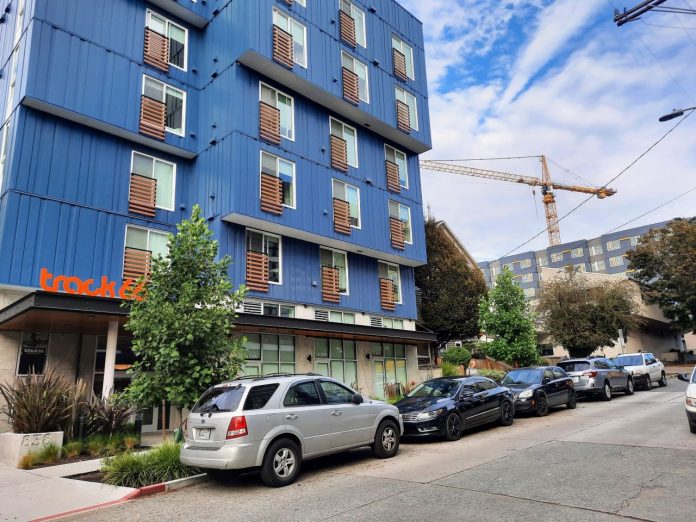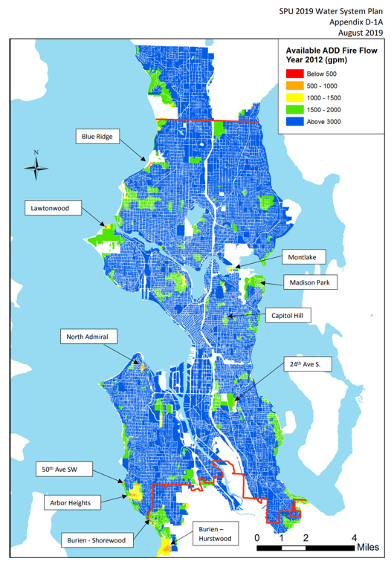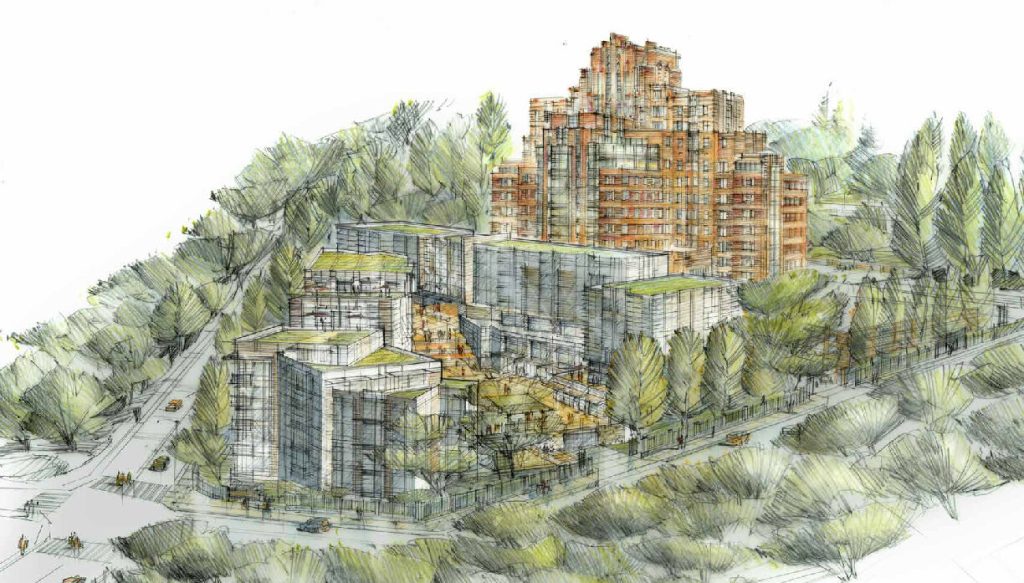
SPU is still saddling homebuilders in Seattle with costly upgrade fees that can jeopardize projects and exacerbate the permitting gauntlet.
Seattle Public Utility’s practice to target developers with unsubstantiated fees to upgrade public assets for the water system continues unchecked. For the year 2023, more than 100 building permit seekers received requirements for costly water system improvements as a condition of approval for new water service. Developers are the risk-takers that make our housing system work and unexpected exorbitant fees have a chilling effect.
The process begins when unsuspecting developers are issued a “NOT APPROVED” status when applying Water Availability Certificates. Developers can achieve an “APPROVED” status if they agree to pay for and install costly public water infrastructure upgrades, including valves and water main extensions. Without an “APPROVED” status, access to the public water system is denied and the project cannot proceed.
I obtained a complete list of Water Availability Certificates issued by SPU from 2017 through November 2023 via a public records request and includes over 800 permit applications that were issued “NOT APPROVED” certificates.
SPU’s drifting code interpretations
Seattle Public Utility (SPU) controls the narrative via numerous administrative documents they have created with verbiage crafted toward targeting developers. They are riddled with requirements to achieve the end-goal of having developers pay for and install major capital system upgrades.
This targeted one-sided goal is revealed within SPU Policy WTR-410. Within is the phrasing to require upgrades from developers “when SPU determines that the improvement provides a positive net present value to the water system in the area.”
Another Director’s Rule WTR-440 includes phrasing that is not consistent with the purpose of a Water Availability Certificate as defined in Washington state law. Specifically, the incorrect phrasing asserts that the purpose is to “establish Seattle Public Utilities’ (SPU) requirements to receive water service.”
On the contrary, the state law dictates that if water capacity is available, the agency is to provide it, not provide additional hoops to jump through or require discretionary improvements as a condition of obtaining that access. Revised Code of Washington (RCW) 19.27.097 states that the purpose of the Water Availability Certificate is to “provide evidence of adequate water supply.”

A third administrative document that further stacks the cards against the developer is Director’s Rule ENG-430, “Utility System Improvement Dispute Process.” Even though the title indicates there may be a reasonable process to seek relief, it is false hope. The document specifically states any claim of proportionality will be rejected. While state law dictates costs for utility upgrades should be proportional in relation to the size of the project, SPU operates in their own universe and blatantly denies developers their right to contest fees and assert proportionality. All water purveyors are required to adhere to the limits of proportionality under RCW 82.02.050(1)(b).
A real drag on homebuilding
Of the many projects affected is a Homestead nonprofit housing project located at 4205 S Kenyon Street. The Water Availability Certificate issued in October of 2023 requires two large 12-inch valves to be installed within an existing water main in S Kenyon Street. The cost is upwards of $100,000. The scope of work includes engineering design drawings and permitting through both the Seattle Department of Transportation (SDOT) and SPU.
There is little to no recourse for builders. For small infill projects, pursuing a lawsuit can be more costly than the expected income from a small housing project. This unscrupulous practice to target developers is undermining potential housing yields in Seattle and it is squeezing smaller developers with less capital out of the market.
This phenomenon hits both market-rate and affordable projects. In one egregious example, a one-million-dollar fee assessment for a fire hydrant that the fire chief didn’t even want, which, coupled together with unnecessary water main replacements, nearly sunk 160 affordable homes planned next to Beacon Hill’s Pacific Hospital. It was only after The Urbanist flagged this issue that the City rescinded this fee, ensuring the project could proceed.

I’ve noted that high fees from SPU appear to be depressing production of accessory dwelling units (ADUs), with only 37% of ADU permits submitted to Seattle between 2017 and 2021 resulting in a completed building, according to Alex Czarnecki, founder of Cottage, a platform that assists with ADU construction. I illustrated one specific example of an ADU project that I worked on being blocked by SPU fees. Instead of producing six homes for middle income earners in the North Rainier Urban Village, the accessory homes were abandoned and the single-family home was renovated and sold for $1,130,000 in 2021.
Opportunity to learn more
Donna Breske & Associates provides presentations of permit impediments and methods of analysis to develop responses to mandates that place projects in jeopardy. An upcoming virtual presentation to discuss this topic is scheduled for Wednesday, March 13 from 12pm to 1:30pm. The presentation also includes a question and answer session. Sign up via this link.
Publisher’s disclosure: Donna Breske also purchased an advertisement on our publication for this event, which we are disclosing in accordance with our Editorial Independence and Transparency policy.

Donna Breske (Guest Contributor)
Donna Breske is a licensed Professional Engineer in the State of Washington. She owns Donna Breske & Associates and with her staff provides land use consulting and civil engineering design for numerous infill projects within multiple jurisdictions in the Puget Sound Area. She has a Bachelor of Science in Civil Engineering from the University of Washington and an MBA from Seattle University. She is married to her husband Fred with whom they share two adult children. She grew up in Seattle and is passionate about eliminating absurd impediments from permitting departments and ensuring consistent and predictable outcomes.
